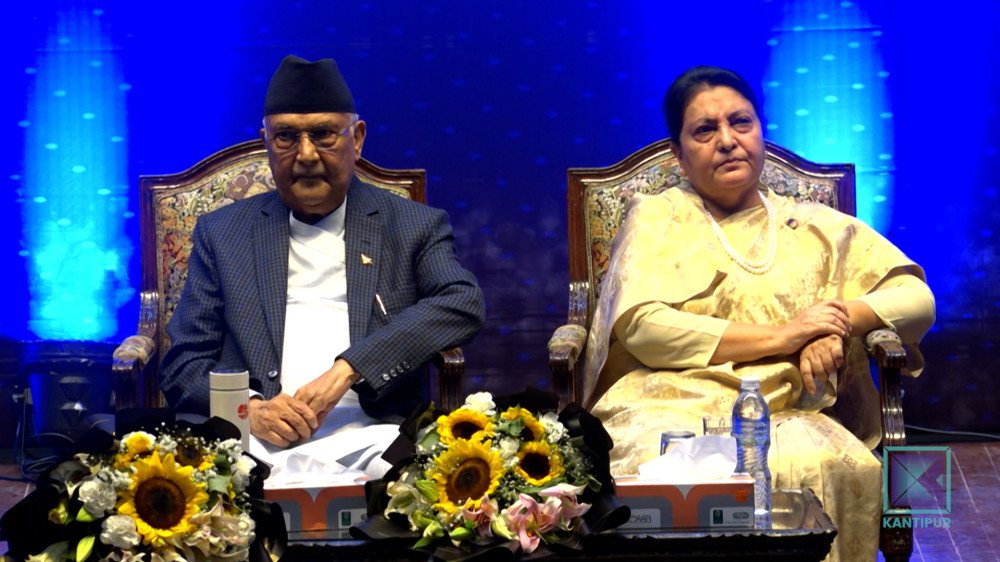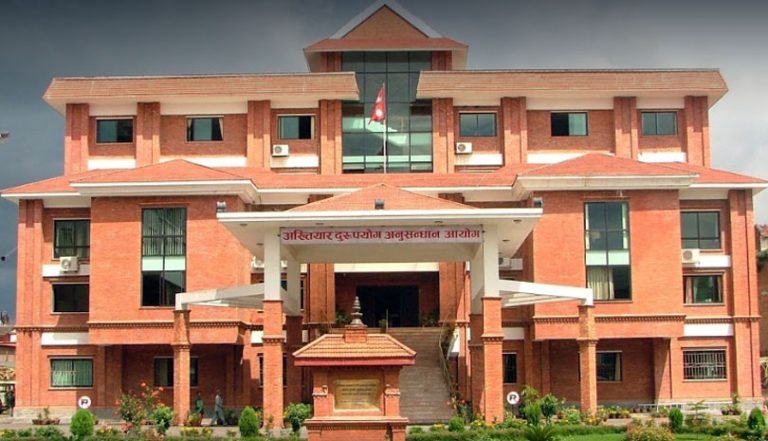Kathmandu, August 13, 2025 — The internal conflict within the Communist Party of Nepal–Unified Marxist Leninist (CPN-UML) has taken a new turn. Prime Minister and party chairman KP Sharma Oli has officially dissociated the Madan Bhandari Foundation from the UML. The ongoing UML rift has deepened. Prime Minister KP Sharma Oli officially distanced the Madan Bhandari Foundation from the party. This move is intensifying internal conflicts within the CPN-UML.
This move further escalates the ongoing political rift between Oli and former President Bidya Devi Bhandari, who remains influential through her leadership of the foundation.
KP Oli’s Statement Separates Madan Bhandari Foundation from UML (UML Rift)
KP Oli spoke at a recent program hosted by the Madan-Ashrit Memorial Foundation. He clarified that the UML party did not create the Madan Bhandari Foundation. He also said the party does not control the foundation.
Oli emphasized, “The Madan Bhandari Foundation is not a party entity but a separate organization established by dedicated individuals. Its operations are autonomous and should not be confused with the UML’s organizational activities.”
Implications for UML and Nepal’s Political Landscape amidst UML Rift
Political experts believe this rift indicates growing factionalism within the UML. Consequently, this factionalism could shape the party’s leadership dynamics. Furthermore, it may also influence future electoral strategies. Overall, the dispute between Oli and Bhandari highlights a power struggle at the core of one of Nepal’s largest political parties.
“The dissociation of the Madan Bhandari Foundation from UML is more than symbolic,” says a senior political analyst. “It shows the extent of division and the struggle for control within the party, which will inevitably affect its stability and public perception.”
This internal conflict reflects broader challenges in Nepal’s political landscape. In fact, leadership disputes and factionalism are common among major parties. As a result, these issues often impact governance. Moreover, they also affect policymaking.
Madan Bhandari Foundation and Its Role
The Madan Bhandari Foundation was established in memory of Madan Bhandari, a revered leader and ideologue of the CPN-UML, known for his contributions to Nepalese politics. The foundation engages in political education, research, and public outreach.
While originally connected to the UML’s ideological legacy, the foundation’s current leadership under Bidya Bhandari has made it a platform for her political agenda. KP Oli’s move to sever formal ties underlines the increasingly divergent paths between the party leadership and the foundation.
What’s Next for UML?
With tensions running high, the UML faces a critical period of internal realignment. The party’s ability to manage factional conflicts and present a united front will be crucial ahead of upcoming elections and key political decisions.
Observers will be watching closely to see whether reconciliation is possible or if the divide will deepen, potentially leading to further fragmentation within Nepal’s political left.
Looking Ahead:
Such factionalism is expected to affect not only the party’s internal leadership but also its future political strategies and alliances.
Stay Informed
We will continue to monitor how these developments impact Nepal’s political landscape and bring you the latest updates on the UML party’s evolving dynamics.


